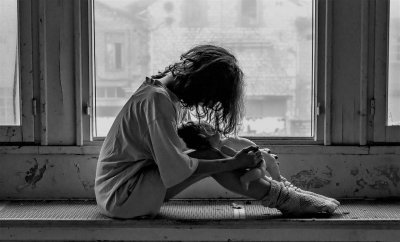Alarming decline in Indigenous life expectancy
A 2021 report by the B.C. First Nations Health Authority revealed that the life expectancy for Indigenous people in the province had dropped by more than six years between 2017 and 2021. In 2021, the life expectancy for Indigenous people was 67.2 years, significantly lower than the 82.5 years for non-Indigenous populations. This stark difference highlights the severe health disparities faced by Indigenous communities in British Columbia.
Dr. Behn Smith shared her personal connection to this data, reflecting on the loss of eight family members, including her aunt, brother, and six cousins, during the same period. "Although people can look at that and see data and numbers, those are our loved ones," she said, emphasizing the real, human impact of these statistics.
Similar trends have been observed in other provinces. For instance, a 2023 report showed that in Alberta, Indigenous men’s life expectancy had dropped to 60 years and women’s to 66 years, a decrease of seven years since 2015. By comparison, the life expectancy for non-Indigenous people remained significantly higher at 79 years for men and 84 for women.
Systemic racism and inadequate resources
The drastic decline in life expectancy among Indigenous populations is not only a result of poor health resources but also systemic racism embedded within Canada’s health-care system. Tania Dick, a registered nurse and Indigenous Nursing Lead at the University of British Columbia, pointed out that Indigenous people frequently encounter racism when seeking medical care. One particularly traumatic case was the death of Dick’s aunt, Debbie, in 2008. After suffering a brain injury from a fall, she was misdiagnosed as intoxicated and denied proper treatment, which ultimately led to her death.
These types of experiences are not isolated. The 2020 "In Plain Sight" report, focusing on British Columbia, revealed widespread discrimination in health-care services. Indigenous patients were more likely to face medical errors, rough treatment, or denial of care compared to non-Indigenous patients. These incidents of medical racism have had fatal consequences, as illustrated by the case of Joyce Echaquan in Quebec. Echaquan recorded herself being verbally abused by hospital staff shortly before her death in 2020, bringing national attention to the systemic mistreatment of Indigenous people in health care.
The impact of the opioid crisis
In addition to systemic racism, the opioid crisis has disproportionately affected Indigenous populations. Dr. Esther Tailfeathers, a family physician on Alberta’s Blood Tribe reserve, highlighted that the province’s defunding of harm reduction programs around 2019 contributed to a sharp decline in Indigenous life expectancy. Specifically, Alberta's decision to close the Lethbridge safe consumption site—the busiest of its kind in the country—left many Indigenous people vulnerable to the toxic drug crisis, leading to preventable overdoses and deaths.
The path to change
Addressing these inequalities requires more than policy changes. Experts like Dr. Behn Smith and Dr. Tailfeathers argue that Indigenous representation within the health-care system is critical. In B.C., as of 2023, only 0.39% of physicians identified as First Nations, with a slightly higher representation of First Nations nurses at 1.54%. To reverse the downward trends in Indigenous health outcomes, these numbers must increase, and Indigenous perspectives must be integrated into decision-making processes.
Recruiting more Indigenous health-care workers starts with rethinking current hiring practices and curricula in medical and nursing schools. Tailfeathers stressed the importance of including Indigenous issues in medical education, as well as engaging students directly with Indigenous communities to better understand their specific health needs. Without this knowledge, non-Indigenous health professionals may struggle to provide the appropriate care for Indigenous patients, often leading to neglect or mistreatment.
Furthermore, allies in the health-care system play a crucial role in effecting change. Tania Dick emphasized that Indigenous communities alone cannot solve these systemic issues. "You need to fix it as non-Indigenous allies," she urged, calling for active participation from those in positions of power to dismantle the barriers faced by Indigenous people in health care.
Protecting cultural knowledge and heritage
Another significant consequence of the health disparities in Indigenous communities is the potential loss of cultural knowledge. When Indigenous elders pass away prematurely, their cultural and linguistic knowledge can die with them. For example, Dr. Behn Smith’s Eh Cho Dene community has only a handful of remaining members who speak their traditional language. Preserving the health of Indigenous populations is therefore not only a matter of equity but also essential for the survival of Indigenous cultures and identities.
The future of Indigenous health care
Improving the life expectancy and overall health outcomes for Indigenous people in Canada is a complex challenge that will require comprehensive efforts. Structural changes in health-care recruitment, education, and policy are essential to ensuring Indigenous representation in decision-making roles. As Dr. Behn Smith, Dr. Tailfeathers, and Tania Dick have highlighted, this issue extends beyond health care—addressing it is vital for protecting Indigenous heritage and supporting the resilience of Indigenous communities.
For those affected by these issues, support is available through services such as the National Indian Residential School Crisis Line and the Hope for Wellness hotline, which provide mental health counseling and crisis support 24/7.
source: CBC


 Canadian experts release updated national standards for pediatric obesity care, highlighting psychological support, family involvement, and medical options. The first major
Canadian experts release updated national standards for pediatric obesity care, highlighting psychological support, family involvement, and medical options. The first major The consumption of ultra-processed foods is a growing concern worldwide due to its links to major health issues. From obesity
The consumption of ultra-processed foods is a growing concern worldwide due to its links to major health issues. From obesity Loneliness, a widespread and often unspoken issue, has been recognized as a significant public health concern. Research shows it can
Loneliness, a widespread and often unspoken issue, has been recognized as a significant public health concern. Research shows it can

